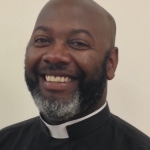 Richard Springer – Director of CTC’s Urban Leadership School, and Assistant Priest at St George-in-the-East in Shadwell – blogs about an exciting pilot project the School is launching in east London.
Richard Springer – Director of CTC’s Urban Leadership School, and Assistant Priest at St George-in-the-East in Shadwell – blogs about an exciting pilot project the School is launching in east London.
Black, Asian and minority ethnic (BAME) citizens in England have historically been marginalised in a variety of ways – in local communities and in society more generally. Unfortunately, the established church has been no exception. Post-war arrivals to these shores, in the Windrush generation, met with a cold reception in many congregations. The proportion of BAME people being ordained in the Church of England remain appallingly low – and direct recruitment programmes are being put together to do something about this.
Alongside the initiatives that are (rightly) seeking to redress the balance of representation, there ought to be a deeper engagement. This involves spending time engaging face-to-face in the environments where we hope new BAME church leaders will emerge and flourish.
That is why CTC has just launched Young Citizens – a two-term pilot project, funded by the Church of England (C of E) nationally. In the pilot stage, we will working with around thirty-six, 15- to 18-year-olds across three C of E secondary schools in East London. The young people will engage in a range of activities led by CTC’s project staff and their school chaplains – exploring themes of the common good and faith in community life; and learning how to run effective community organising “listening campaigns” with their peers and teachers.
At CTC, we see young BAME Christians as a blessing not a challenge. In one of the participant schools, 90% of the pupils are BAME. The other two are not far behind. By being at C of E schools, these young people and their families are already engaged in the church’s life.The opportunity is to build on this relationship, showing young people how the C of E in our local communities works for the common good, and developing new forms of ministry and leadership through which these young people can make a difference.
For us at CTC, the value of community organising practices is not just in opening up conversations that matter, or in developing leaders, but in making tangible change in local neighbourhoods. This is an incarnational approach. The environment these young citizens will work in is not a vacuum-like “finishing school”. They will be learning with their neighbours in a physical place – their local area. The relationships which this pilot project establishes will create opportunities for them to see why the local church matters in a neighbourhood. In doing so, it opens the door to a wide range of vocational opportunities.
In taking part in the project, these young citizens are not just being trained to be part of the leadership of tomorrow’s church. By working on this project, they will be taking on a leadership role in the church of today. For the work these young people do on the project is the work of the Church of England in their schools and parishes.

Leave a Comment